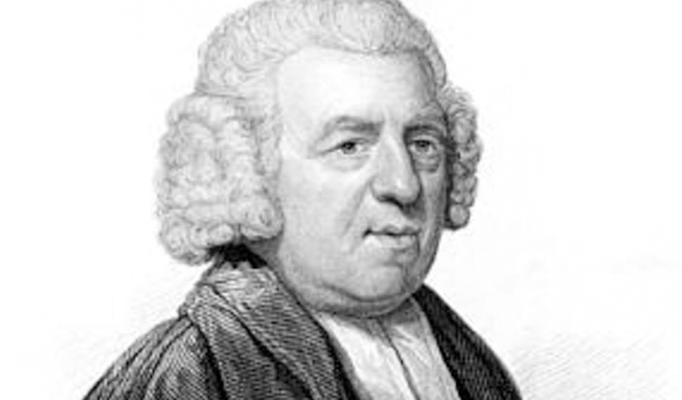
A violent storm was the turning point in John Newton’s life. His godly mother had loved him deeply and prayerfully taught him the scriptures. When Newton was just six years old she died and left him motherless.
On his 11th birthday he was sent to sea. He soon became a teenage rebel. He was press-ganged into the Navy and flogged for desertion. His captain was not pleased that Newton kept running off to visit his future wife Mary Catlett.
Stripped to the waist and tied to the grating, he was flogged with 90 lashes and demoted to a common seaman.
Alcohol addiction devastated his young life. He even ended up for a short time as a slave himself, coming close to starvation.
What he was most enslaved to was a violent temper and cursed everyone and everything. John was so blasphemous that once even his hardened shipmates threatened to throw him overboard in order to calm a dangerous storm.
Later, Newton became involved with the African Slave Trade. You name the corruption … he saw it and lived it during his wealthy slave trading days.
He was in such despair that he decided to kill himself. His desire to marry his future wife kept him alive. Throughout his blasphemy and rebellion, John had family members who never stopped praying for him.
Secretly he began to read the Bible, but it never made sense to him. One night in March 1748, at the age of 23, he was on board a cargo ship which was riding a storm with heavy seas and extemely rough weather. Worn out with pumping water and almost frozen, he called out for God’s mercy at the height of the storm, and was amazed to be saved from almost certain death.
Newton’s life had many twists and turns. Eventually he renounced his involvement with slave trading, married his childhood sweetheart, and, at age 39, became an Anglican Priest.
He persuaded the young William Wilberforce to stay in politics, and joined him in his fight to abolish the slave trade. Being an ex-slave trader, he was able to prove how brutal and degrading slavery really was.
Some wealthy business people defended the slave trade as both harmless to the slaves and essential to economic stability. They even argued that the African slaves preferred being slaves. After 40 years of prayer and hard work, Wilberforce, through Newton’s influence, finally had slavery abolished in 1833.
John Newton is a parable of what the Christian faith is all about: moving from death to life, from slavery to freedom. Newton celebrated his new life in Christ by writing one of the world’s most famous songs.
“Amazing Grace, how sweet
the sound
That saved a wretch like me.
I once was lost but now
am found,
Was blind but now I see.”
May Amazing Grace touch your heart.
We are writing this article while in Africa teaching on marriage in Rwanda. The African couples we taught were moved to hear about how Jesus showed such amazing grace to a slave trader. If Jesus can transform Newton, there is hope for each of us, no matter how lost.
Rev Dr Ed & Janice Hird, Co-authors of For Better, For Worse: discovering the keys to a Lasting Relationship.

Leave a Reply